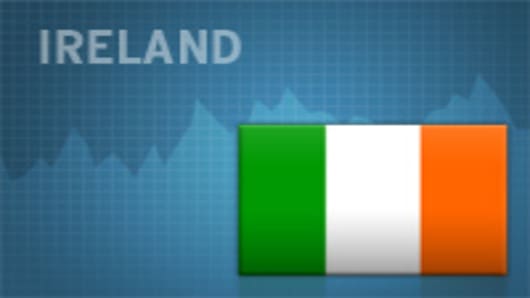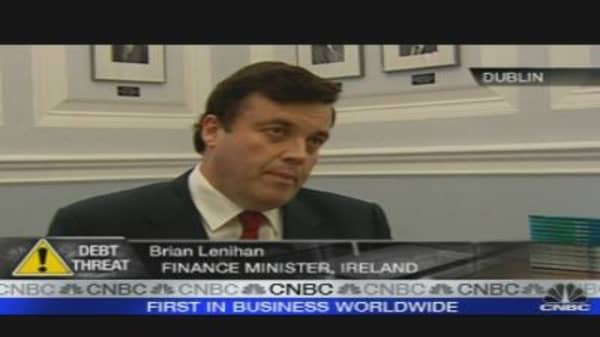The Celtic Tiger may have a broken tail but Finance Minister Brian Lenihan tells CNBC that the Irish economy still has a very good story to tell.
While not universally popular at home, Lenihan has made some high profile friends over recent months for his robust response to Ireland's spiraling budget deficit.
Indeed, his budget that slashes pay in the public sector, unveiled in December, is now being seen as the model that countries such as Greece need to mimic.
Sitting down with me last night, he, however, acknowledged that the job is only half done. While the bond market may have rewarded Dublin's aggressive moves by lowering its cost of borrowing, he understands that traders will remain worried until they get more visibility over the exact cost of the country's bad bank plan NAMA.
However, he believes that by the middle of the year the situation will be much clearer and the spread between Irish and German debt will tighten significantly more. That said, he won't rule out that he will have to take a majority stake in some of Ireland's leading banks.
Indeed, despite the positive response to his plans so far, he did admit to me that his hard-hitting plan is not without risks.
- Watch the full interview with Brian Lenihan above.
By shrinking the public sector so hard at the very moment the private sector is at is at its weakest, Lenihan is now banking that the small and open Irish economy will export its way out of trouble.
So far, the economic numbers are behind him, exports have remained remarkably stable despite the weak global story and if growth picks up Ireland should be a winner.
But if growth does pick up, won't the ECB be hiking rates? Lenihan isn't so sure. He thinks that the ECB will hold back on aggressive tightening. Though he says if rates do rise rapidly it will be painful for Ireland.
So far, the Irish government has largely avoided any major public protests to his plan. In fact, the public response has been remarkably muted. That could all change in 2010 though, as the Irish become increasingly weary of falling wages and high unemployment.
For now, though, he seems very jovial and very happy to have seen the spotlight turn on his Greek colleague George Papaconstantinou.




